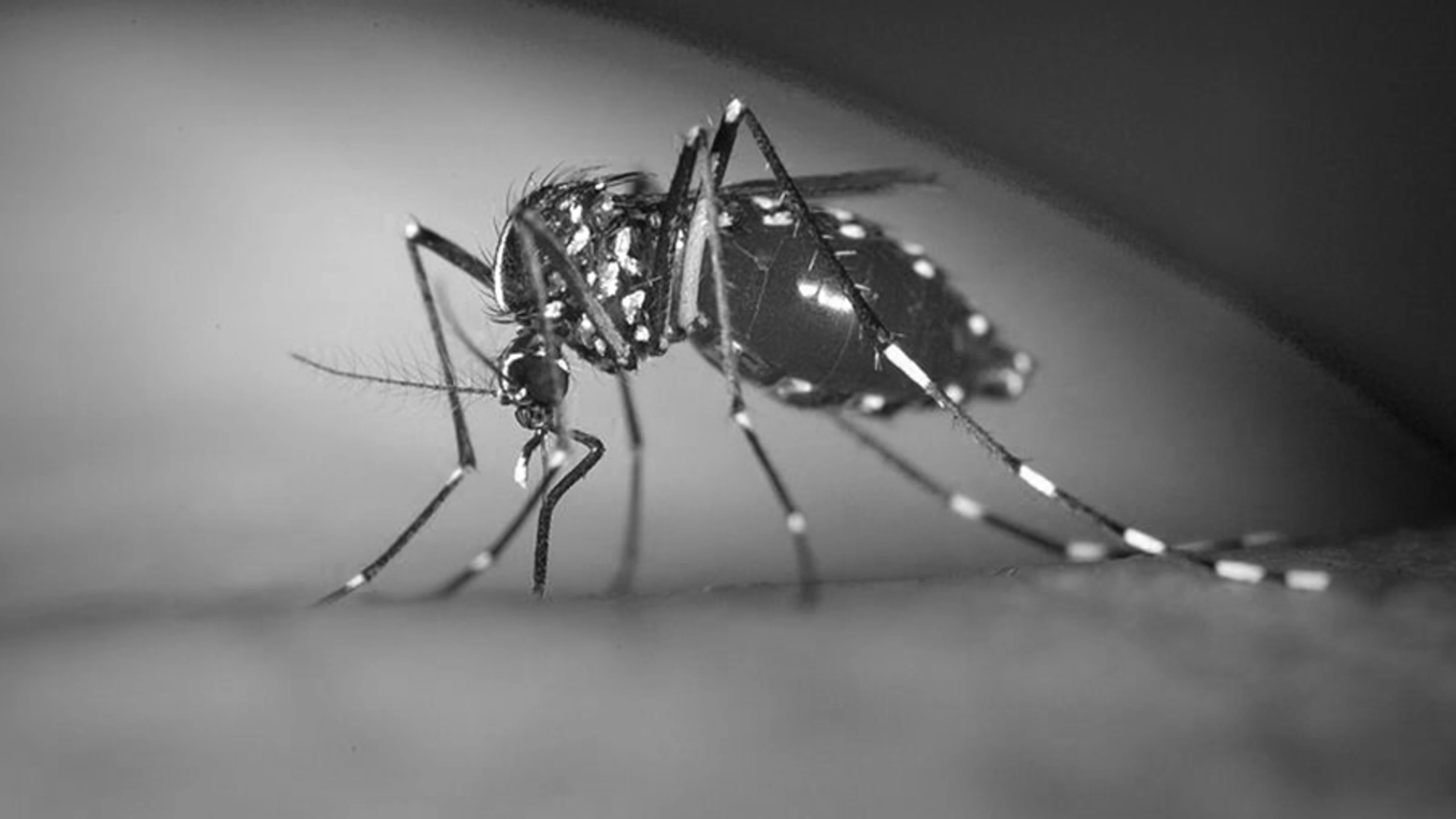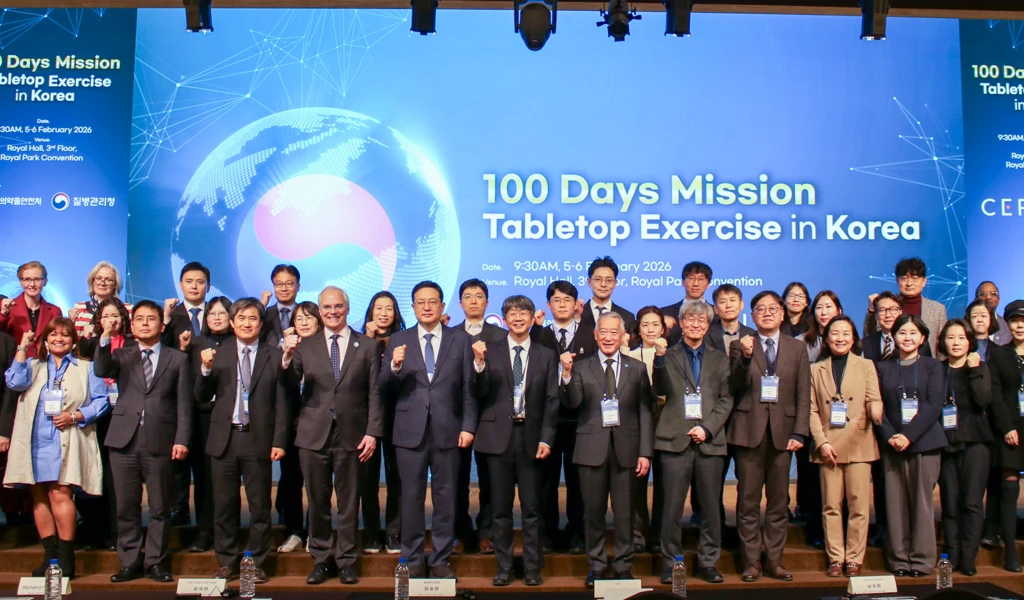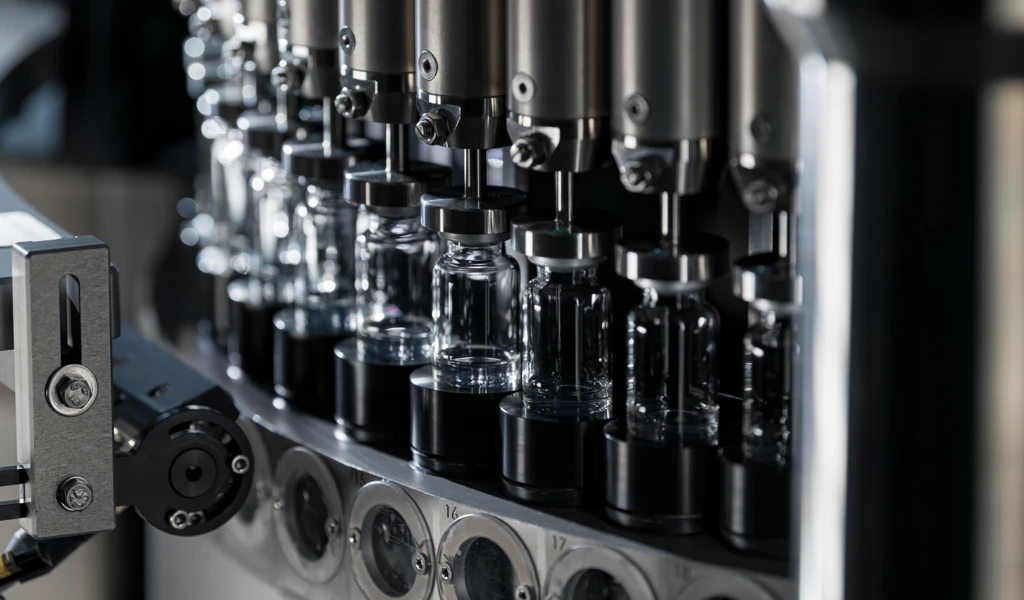CEPI awards up to US $14.1 million to consortium of IVI and Bharat Biotech to advance development of Chikungunya vaccine in collaboration with Ind-CEPI

June 2 2020, Oslo, Norway; Seoul, South Korea; Telangana, India—CEPI, the Coalition for Epidemic Preparedness Innovations, in collaboration with Ind-CEPI, has announced a new partnering agreement with a consortium comprising Bharat Biotech (BBIL) and the International Vaccine Institute (IVI) to advance the development of a Chikungunya vaccine. CEPI will provide the consortium with up to US$14.1 million for vaccine manufacturing and clinical development of a two-dose live-inactivated vaccine (BBV87) against Chikungunya. This award is supported by the European Union's (EU's) Horizon 2020 programme through an existing framework partnership agreement with CEPI.
The consortium will be further supported with a grant of up to $2.0m from the Indian Government's Ind-CEPI initiative which will fund the set-up of GMP manufacturing facilities for the vaccine in India, and the subsequent manufacture of clinical trial materials. In addition to manufacturing, the partnering agreement will finance a multi-centre Phase 2/3 adaptive clinical trial to be conducted by IVI in Colombia, Panama and Thailand which will provide crucial data about the safety and immunogenicity of the vaccine candidate.
The partnership will build on BBIL's experience of developing and supplying affordable vaccines, and WHO prequalification procedures, to ensure affordable access to the vaccine in countries where Chikungunya is endemic, in line with CEPI's core commitment to equitable access.
The investment is part of CEPI's third call for proposals which was launched in January 2019. Since the launch of this call, over US$80 million of CEPI core funding has been committed to three Chikungunya vaccine candidates and two Rift Valley Fever vaccine candidates.
BBV87 vaccine candidate
BBIL's BBV87 vaccine is an inactivated whole virion vaccine based on a strain derived from an East, Central, South African (ECSA) genotype. The vaccine has completed standard pre-clinical studies, and an optimum immune response was elicited by the adjuvanted vaccine in phase 1 clinical trials in India. Inactivated virions technology has a safety profile which potentially makes this vaccine accessible to special populations, such as the immunocompromised and pregnant women, that some other technologies cannot reach.
Chikungunya virus
Chikungunya virus was first identified in Tanzania in 1952, with sporadic outbreaks of the disease reported subsequently across Africa and Asia. In 2004, the disease began to spread quickly, causing large-scale outbreaks around the world. Since the re-emergence of the virus, the total number of cases has been estimated at over 3.4 million in 43 countries.
Chikungunya is spread by the bites of infected female Aedes mosquitoes and causes fever, severe joint pain, muscle pain, headache, nausea, fatigue and rash. Joint pain is often debilitating and can persist for weeks to years.
Climate change could further amplify the threat posed by Chikungunya. As the climate warms, more areas across the world will become habitable for the mosquito vectors that transmit the virus, thereby increasing the size of the human population at risk of infection. For example, in 2007, an outbreak of Chikungunya virus infections was declared for the first time in Europe with more than 200 human cases reported in Italy. Since 2014, in the USA, local-transmission of the virus has been reported in Florida, Puerto Rico, Texas and the U.S. Virgin Islands.
"Chikungunya continues to be a threat to public health in countries around the globe. It is a painful and debilitating disease for which there is no licensed vaccine or treatment. Through this partnership with Bharat Biotech and IVI we will accelerate the clinical development of the Chikungunya vaccine candidate, with the aim of producing a vaccine and making it accessible to those most affected by the disease.”
"Chikungunya has emerged as an important public health problem in India. The development of an effective Chikungunya vaccine will be a game changer in the global health sector. Under the Ind-CEPI mission, the Department of Biotechnology, Government of India will support Bharat Biotech for this collaborative project, the first initiative of this mission, to expedite the development of Chikungunya vaccine.”
"We are immensely proud to be part of this esteemed alliance to bring to the world a safe and effective solution against the debilitating Chikungunya infection. At Bharat Biotech, we have always been at the forefront of innovation while developing vaccines for neglected diseases such as Typhoid and re-emerging epidemics such as Zika, H1N1 and Japanese Encephalitis. We are hopeful that with accelerated clinical development in endemic countries, the candidate CHIK vaccine will be successful. We are witnessing that today's neglected diseases are susceptible to become tomorrow's pandemics and with this collaboration we have the opportunity to tackle them proactively.”
"Vaccination is the most sustainable and cost-effective way of protecting millions of people from Chikungunya, a painful disease with no known cure or licensed vaccine. In line with IVI's mission to develop vaccines against diseases that primarily impact low- and middle-income countries, our partnership with Bharat Biotech and CEPI seeks to develop and produce a safe, effective, and affordable vaccine that protects people from the debilitating effects of Chikungunya and enables them to live productive lives.”
Through these late-phase clinical trials under GCCDP, we're looking forward to generating additional safety and immunogenicity data from three endemic countries to support use of this vaccine in outbreaks and routine immunization in endemic countries.
Notes to Editors
Since CEPI was launched, the European Union has provided a total of €136 million in Horizon 2020 funding for vaccine development and trials; in addition, significant contributions through the European and Developing Countries Clinical Trials Partnership (EDCTP) and the Innovative Medicines Initiative (IMI) have also supported CEPI's efforts.
About CEPI
CEPI is an innovative partnership between public, private, philanthropic, and civil organisations, launched at Davos in 2017, to develop vaccines to stop future epidemics. CEPI has moved with great urgency and in coordination with WHO in response to the emergence of COVID-19. CEPI has initiated 9 partnerships to develop vaccines against the novel coronavirus. The programmes will leverage rapid response platforms already supported by CEPI as well as new partnerships. The aim is to advance COVID-19 vaccine candidates into clinical testing as quickly as possible.
Before the emergence of COVID-19 CEPI's priority diseases included Ebola virus, Lassa virus, Middle East Respiratory Syndrome coronavirus, Nipah virus, Rift Valley Fever and Chikungunya virus. CEPI also invested in platform technologies that can be used for rapid vaccine and immunoprophylactic development against unknown pathogens (Disease X).
Follow our news page for the latest updates.
About Ind-CEPI
The Department of Biotechnology, Ministry of Science & Technology, Government of India is implementing the Ind-CEPI mission ‘India Centric Epidemic Preparedness through Rapid Vaccine Development: Supporting Indian Vaccine Development Aligned with the Global Initiative of the Coalition for Epidemic Preparedness Innovations (CEPI)'. Ind-CEPI Mission aims to strengthen the development of vaccines for the diseases of epidemic potential in India as well as build coordinated preparedness in the Indian public health system and vaccine industry to address existing and emergent infectious threats in India.
About Bharat Biotech
Bharat Biotech has established an excellent track record of innovation with more than 100 global patents, a wide product portfolio of more than 16 products, registrations in more than 70 countries and WHO Pre-qualifications.
Having already delivered more than 4 billion doses of vaccines to the world, Bharat continues to innovate having developed vaccines for H1N1, Rotavirus, Japanese Encephalitis, Chikungunya, Zika and the world's first conjugated vaccine for Typhoid.
Our commitment to global social innovation programs and public private partnerships resulted in the introduction of path breaking WHO pre-qualified vaccines BIOPOLIO ® ROTAVAC® and Typbar TCV®' combatting polio, rotavirus, typhoid infections respectively.
The recent acquisition of the Rabies vaccine facility, Chiron Behring from GSK has positioned Bharat as the largest Rabies vaccine manufacturer in the world.
About the International Vaccine Institute (IVI)
The International Vaccine Institute (IVI) is a nonprofit inter-governmental organization established in 1997 at the initiative of the United Nations Development Programme (UNDP). Headquartered in Seoul, South Korea, IVI was the first international organization hosted by Korea. IVI has 35 signatory countries and the World Health Organization (WHO) on its treaty, including Korea, Sweden and India as state funders.
Our mandate is to make vaccines available and accessible for the world's most vulnerable people. We focus on infectious diseases of global health importance such as cholera, typhoid, shigella, salmonella, schistosomiasis, Group A Strep, Hepatitis A, HPV, TB, HIV, MERS, COVID-19, as well as antimicrobial resistance. For more information, please visit https://www.ivi.int

.webp)
